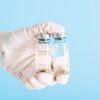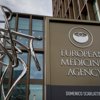Fritextsökning
Artiklar per år
Innehållstyper
-

The vaccine has saved 94 million lives – but measles is spreading again
A disease we once believed belonged to the past is now resurging in both Europe and the United States. In the shadow of growing skepticism and declining vaccination coverage, measles – which has claimed millions of lives throughout history – is making a comeback.
-

New findings on the diseases that crushed Napoleon’s army
As if cold, starvation, and typhus weren’t enough. New research reveals that Napoleon’s defeated army also suffered from paratyphoid fever and relapsing fever during the retreat from Russia.
-

Vaccine project targeting congenital infection scrapped in late-stage trial – “Clearly disappointed”
Hope for the first vaccine against the world’s most common congenital infection has taken a serious hit
-

Swedish life science is growing – but capital is not keeping up
The number of employees and companies in Swedish life science is increasing and the sector is more equal than many other sectors. But investments in unlisted companies are weak.
-

A cluster contribution to European life science innovation and competitiveness?
-

Swedish team tests Alzheimer antibody for brain imaging
Recent breakthroughs in Alzheimer’s treatment have increased the need for precise diagnostics in the field. Researchers in Uppsala are working to develop improved methods for both identifying suitable patients and ensuring they receive the right therapy.
-

Gene therapy restored hearing in children with congenital deafness
Eleven out of twelve children with congenital deafness showed improvements in a study testing Regeneron’s gene therapy for hereditary hearing loss. The U.S. company now plans to apply for approval of the gene therapy.
-

Nytt blodtest ger hopp om diagnosmetod för ME
Ett nytt blodtest visar lovande resultat för att kunna upptäcka ME/CFS, enligt en brittisk studie. Resultaten väcker hopp om en framtida biomarkör, men metoden befinner sig ännu i ett tidigt skede och mer forskning behövs.
-

How the Nobel discovery is used in drug development
Regulatory T cells keep the immune system in check, a discovery now awarded the 2025 Nobel Prize in Physiology or Medicine. Qiang Pan Hammarström explains how this finding is being applied in today’s drug development, and what challenges remain.
-

Many discontinue obesity medication – new study highlights the reasons
A new study maps out the most common reasons why patients choose to stop taking obesity medication prematurely. “Obesity medication discontinuation reverses health benefits and prompts weight regain in most individuals,” says Hamlet Gasoyan, one of the researchers behind the new study, in an interview with Life Science Sweden.
-

Sarah Lidé: ”Artificial intelligence must not replace authentic interactions”
Artificial intelligence must never become a replacement for authentic, even if messy, interactions with our fellow humankind, Sarah Lifé, Deputy CEO at Medicon Village Innovation, writes in a column.
-

Genmab to Acquire Dutch biotech for USD 8 Billion
Danish pharmaceutical company Genmab has agreed to acquire Dutch firm Merus, a developer of cancer therapies, for USD 8 billion, equivalent to nearly SEK 75 billion.
-

Phase III win for Hansa Biopharma: “We Are Thrilled”
Swedish biotech Hansa Biopharma’s transplant drug imlifidase has met the primary efficacy endpoint in a registration-enabling Phase III study in the United States.
-

Astra Zeneca’s asthma drug nears approval for sinus inflammation
Astra Zeneca’s drug Tezspire receives positive opinion from the European Medicines Agency (EMA) for the treatment of chronic rhinosinusitis with nasal polyps.
-

Heart Monitoring in Breast Cancer – Essential or Excessive?
Trastuzumab and related drugs have transformed breast cancer treatment and dramatically improved survival rates. But the close cardiac monitoring required during treatment can be a heavy burden for both patients and healthcare systems. Dr. Andri Papakonstantinou is working to refine how doctors identify which patients truly need intensive follow-up.
-

Astra Zeneca pauses multi-million investment in the UK
Astra Zeneca has paused a planned investment worth $270 million. It is the latest pharmaceutical company to pull back on its commitments in the UK.
-

Novo Nordisk tells staff to return to office
At the turn of the year, Novo Nordisk employees will no longer be able to work remotely. According to the company’s new CEO, the move is intended to accelerate decision-making and improve commercial execution as competition in the obesity drug market intensifies.
-

Eli Lilly Recruits Leading Swedish Researcher Kaj Blennow to Head Alzheimer’s Project
Eli Lilly recruits Kaj Blennow, leading Alzheimer’s researcher, as VP of neuroscience biomarker development.
-

Billion-Dollar Deal Sends BioArctic Soaring
Swedish Alzheimer-focused company BioArctic has entered into a licensing collaboration with Novartis regarding a technology aimed at enhancing efficient drug delivery to the brain. The BioArctic stock surged significantly following the announcement.
-

Roche joins Medicon Village
Roche and Medicon Village Innovation have signed an agreement for deeper collaboration. “The fact that Roche is now becoming part of this environment further strengthens our concept,” says Medicon Village Innovation CEO Petter Hartman.
-

New ATMP center inaugurated: “In the future, we will see cell and gene therapies in all clinics”
Karolinska Institutet and Karolinska University Hospital’s new ATMP center was inaugurated in Flemingsberg, south of Stockholm. “The ATMP Center is not just a physical place, it is a promise,” said KI’s Vice-Chancellor Annika Östman Wernerson.
-

Anocca raises SEK 440 million ahead of clinical cancer trial
Swedish cell therapy biotech Anocca has successfully raised SEK 440 million in a new funding round to support upcoming clinical trials in pancreatic cancer.
-

Wegovy approved in the U.S. for treatment of liver disease
The U.S. Food and Drug Administration (FDA) has granted accelerated approval for Novo Nordisk’s drug Wegovy to treat the serious liver condition known as MASH. The decision strengthens the company’s position in the field of metabolic diseases.
-

The top five most expensive drugs in 2025
New advanced therapeutic medicines are reaching the market, but their price tags remain exceptionally high. This year’s ranking of the most expensive drugs in the US reveals a common denominator: all are gene therapies administered as one-time treatments.